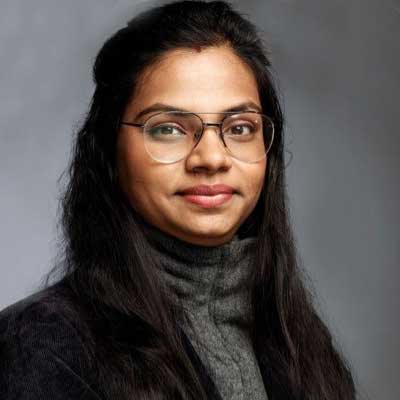Why Accepting & Adapting Changes in Higher education | Dr. Shikha Verma Kashyap | Director | AAFT University of Media and Arts
 HEI constitutes the backbone of the economic and social Development of any nation. To further elaborate this HEI’s have tremendous potential for GLONALO (Global National and Local) development. Past two years have been highly challenging to sustain the drastic and dramatic changes that were happening across and transformation as an outcome that was expected to happen in future. This was found & realized to be common for all the fields & domains with HEI not being an exception. The onset of the recent pandemic highlighted the need toward adaptation of the changing trends to survive with the best possible outcome for any HEI. The wave of digitization that emerged recently with a view to impact the reach when the institutions were closed to keep the education ongoing led everyone to analyse the situation asunder control or stabilized. This was an illusion that digital adaptation has faded the concerns with academics that emerged due to pandemic, leaving the root cause & real problems getting faced by higher education unaddressed. In most of the countries higher education is still inaccessible to the underprivileged who are socio economically weak. There are few adaptations that can counterbalance the expected outcome from higher education if it is considered and implemented. Learn from anywhere, concepts that emerged evidently in the recent past need to be modified with learn from everywhere. Online TLM (Teaching Learning Methodology) to an extent impacted the learning outcomes in a bit adverse manner. This cannot be only compensated if hybrid TLM is adopted, but the emphasis should be towards such development in a students learning ability that he/she can learn from everywhere, can be restructured as experiential learning. This also indicates the lecture which is one of the most conventional teaching pedagogy can be to some extent replaced with active learning. This relies on principles such as spaced learning, social learning, emotional learning &application of knowledge getting accepted by institutions in the name of Fully Active Learning. Lastly HEI needs to impact upon teaching and developing skills in students that remains relevant to the changing world &doesn’t get obsolete soon. The skill development must be emphasized in a manner that the student understands the most appropriate way, means and modes that remain relevant to its stakeholder in association, rather than knowledge to develop any specific product that will get outdated soon. To summarize, the recent past has given an opportunity to HEI’s to retune the reform to adapt & enhance and active learning & skill development approach in time to come as prime focus.
HEI constitutes the backbone of the economic and social Development of any nation. To further elaborate this HEI’s have tremendous potential for GLONALO (Global National and Local) development. Past two years have been highly challenging to sustain the drastic and dramatic changes that were happening across and transformation as an outcome that was expected to happen in future. This was found & realized to be common for all the fields & domains with HEI not being an exception. The onset of the recent pandemic highlighted the need toward adaptation of the changing trends to survive with the best possible outcome for any HEI. The wave of digitization that emerged recently with a view to impact the reach when the institutions were closed to keep the education ongoing led everyone to analyse the situation asunder control or stabilized. This was an illusion that digital adaptation has faded the concerns with academics that emerged due to pandemic, leaving the root cause & real problems getting faced by higher education unaddressed. In most of the countries higher education is still inaccessible to the underprivileged who are socio economically weak. There are few adaptations that can counterbalance the expected outcome from higher education if it is considered and implemented. Learn from anywhere, concepts that emerged evidently in the recent past need to be modified with learn from everywhere. Online TLM (Teaching Learning Methodology) to an extent impacted the learning outcomes in a bit adverse manner. This cannot be only compensated if hybrid TLM is adopted, but the emphasis should be towards such development in a students learning ability that he/she can learn from everywhere, can be restructured as experiential learning. This also indicates the lecture which is one of the most conventional teaching pedagogy can be to some extent replaced with active learning. This relies on principles such as spaced learning, social learning, emotional learning &application of knowledge getting accepted by institutions in the name of Fully Active Learning. Lastly HEI needs to impact upon teaching and developing skills in students that remains relevant to the changing world &doesn’t get obsolete soon. The skill development must be emphasized in a manner that the student understands the most appropriate way, means and modes that remain relevant to its stakeholder in association, rather than knowledge to develop any specific product that will get outdated soon. To summarize, the recent past has given an opportunity to HEI’s to retune the reform to adapt & enhance and active learning & skill development approach in time to come as prime focus.


